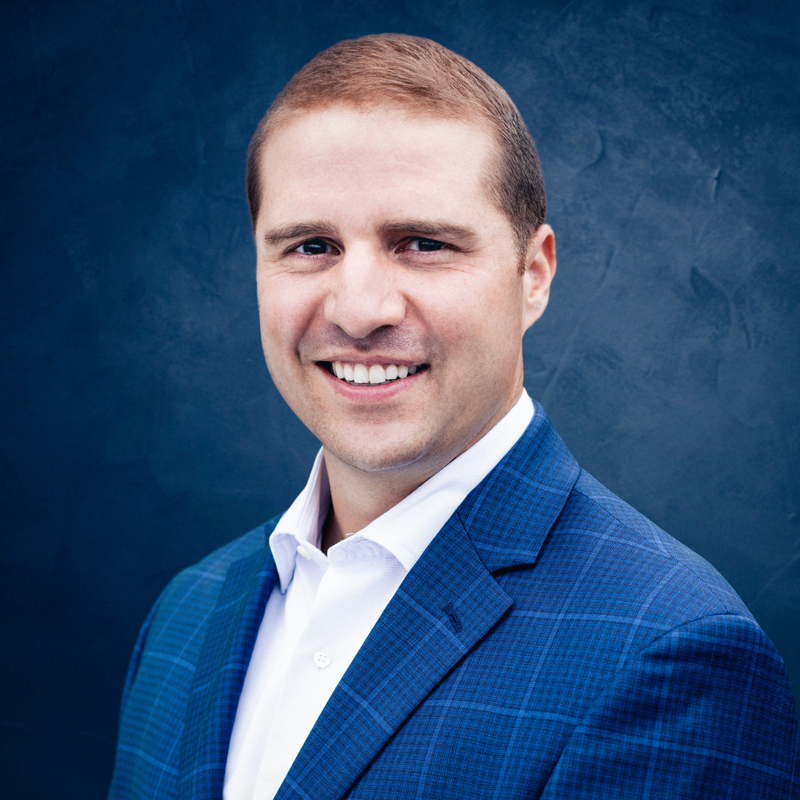Your Money Game with James Alexander
How well do you know the rules of your money game? James Alexander talks about how to figure it out and play to win!
Listen to us On
About the Episode
We focused on understanding your money game, how and why staying focused is essential, the role greed and fear play, how our finances are like chess and checkers, and four important questions to ask yourself, with James Alexander, CFP and Partner with Edge Financial Advisors.
Listen to hear a difference-making tip on why thinking about your financial life like a marathon makes sense!
You can learn more about James at EdgeFA.com, Facebook, X, YouTube, and LinkedIn.
Did you get anything out of this episode? Do us a solid and leave a review:
https://ratethispodcast.com/alignedmoneyshow
Learn more and engage at MoneyAlignmentAcademy.com, Twitter, LinkedIn, Instagram, YouTube and Facebook.
Buy George G a coffee (he loves coffee)
https://www.buymeacoffee.com/lifeblood
Have George G speak
https://moneyalignmentacademy.com/speaking/
Financial literacy and wellness for individuals, families, and companies
https://moneyalignmentacademy.com/
Find George G’s books here
The Aligned Money Show is the podcast for Money Alignment Academy, copyright 2024.

George Grombacher
Host

James Alexander
Guest
Episode Transcript
george grombacher 0:01
James, to get us started, give me two truths and a lie, please. Wonderful.
James Alexander 0:06
All right. The first one, when I was a child, I wanted to be a sports broadcaster. Nice. Number two, in high school, I became a chess champion, and number three, I once won $20,000 in a poker tournament.
george grombacher 0:28
Okay, excellent. So you wanted to be a sports broadcaster as a kid, you became a chess champion, and you once won 20 grand in a poker tournament. Those are all believable. I am going to say that you never wanted to be a sports broadcaster.
James Alexander 0:48
That is incorrect. Ah,
Unknown Speaker 0:50
you got me. I
James Alexander 0:51
I did want to be a sports broadcaster for a brief period of time. The one that is a lie is I was never a chess champion. I did play competitively, but I took third place. Was the best I ever got.
george grombacher 1:03
So there you have it, all right? Well, don’t, don’t beat yourself up. Too bad. Third place is still really good. 20 grand playing cards. That’s awesome.
James Alexander 1:13
Playing cards back in the day, when that was a big deal, and in Vegas, I bought it, you know, one, one day I ended up, you know, I think it was $100 buy in, and got all the way through. So go figure.
george grombacher 1:25
Okay, alright, well, you got me, and that was really well done. I saw on your your background that you studied finance and mathematics, so I figured, okay, there’s math and and you also taught chess for a bit. So I figured the chess thing was probably true, and math and cards go hand in hand. And so, well done. James, well done. Well,
James Alexander 1:47
thank you. I can talk numbers all day long, but I know that the purpose of this podcast, well, you’ve talked about numbers in the past. We will dive into something a little bit differently here. So
george grombacher 1:57
looking forward to it. Yeah, man. So what is, what is top of mind for you right now?
James Alexander 2:01
Yeah, so part of the reason I chose those three answers to your question, George is they’re all games. And what I wanted to talk about today is something I’ve been passionate about since I started my career, frankly, 15 years ago, a little bit over that once we had our housing market crisis, and I’ve experienced quite a bit, and what I’ve learned over those years is how powerful it is for for clients, for people to play their own game and to ignore some of the outside noise, and how incredibly hard it is to do,
george grombacher 2:37
yes, play your own game is important. To tune out the noise. Why? Why is? Why are those, those, those things so hard?
James Alexander 2:47
Yeah, as I reflect on it, there are so many distractions in today’s world compared to 20 years ago, let alone 50 years ago. You know, one of those main distractions has become this wealth gap in America that is widening. What do I mean by that? There, the income from the CEO compared to the income of the janitor, is much wider than it was quite some time ago, and income drives a lot of wealth building to a degree, to a degree. There’s certain behaviors that I’ve seen people do that, can that? Can, you know, challenge them beyond that, but that’s a big deal. And so because of that widening wealth gap, there’s a innate sense of pressure for us to succeed in this game of the financial world. And you know, you combine that with the fact that the burden is being put on the investor ever since 1980 when the 401, K changes came into play. You know, the investors having to figure it out on their own, and it’s overwhelming and it’s challenging, and they have so much that’s coming their way, which really ties to the third reason as to why that I am probably most passionate about, above nothing else is the the concept of the news and media, especially social media, and our sense of competition that we have as human beings, the desire to succeed. And so when you have an immense amount of information coming your way, some of it is wonderful. Some of it, unfortunately, isn’t. It’s hard to juggle all that. And when we we have this, this combining towards us, we lose sense of what actually, first off, matters to us, but what game we’re playing for ourselves and ignoring everybody else, and what game they’re playing. So many fights I’ve seen, whether it’s on CNBC or the neighbors across the street, those fights I’ve seen are just determined by people playing two different games. They’re talking about two different stocks or two different investment products or what have you, and it’s just very different for every single person. And taking a step back and realizing, what do I want? But why do I want that? Where am I at in this game, and how can I set myself up? Easier said than done. George, but so powerful.
george grombacher 5:09
That’s all really powerful. That’s all super thoughtful, and I appreciate that greatly. Really interesting, that that wealth gap between what CEO and the office worker or janitor used to make is extremely wide, and now we know about it versus we maybe would have known about it just from Gossip over on the water cooler, but now I know how much everybody makes. And to your point, the news, the concept of the news, I think that that’s a great term, but Yeah, always. So now we’re competing against everybody. I don’t necessarily know how much these people wake but I see a see what they have, and then it’s all on me now, all of a sudden, to figure out how to save money, versus I just worked here and I got a pension. So those are all really compelling and good reasons why it is that, well, is that those are contributing to the for a reality that I am not saving enough and or that I just don’t feel like I’m where I ought to be?
James Alexander 6:16
Yeah, absolutely. I mean, there’s a sense of comparison. It will always exist. You know, I read a novel by Morgan Housel, who’s one of my favorite authors. He’s becoming widely popular. Wrote two books. One of them is same as ever. And in that book that he wrote, he talks about what will not change in our society, despite everything else that we see, that we’re scared of changing, what won’t change, what won’t change is greed and fear, the idea about being greedy, and why are we greedy? There’s a sense of competition there. And to your point, everything is being in and we’re just being inundated every day with way too much information, and we lose sight of simplifying. But then there’s also fear, which is goes back to the news. The news is in business, George, no fault of their own. Let me want to be clear on that, no fault of their own. The news is business to get us to watch tomorrow. How do they do that? More often than not, is by creating some sense of fear all the bad news that’s going on out there. And when we hear that, you know, we just we get into fight or flight mode. You know, I either want to fight it and I’m angry about it, or I just want to run away and ignore it. And so when we do that, we lose sight of us. And what I’ve told my clients that being a financial advisor is be selfish with your money. You know, be selfish in terms of who you want to give, to be selfish in terms of, you know, when do you want to foresee retirement? And I actually, frankly, don’t like that word retirement. I talk about next chapter, because there’s a sense of, this is what happens when I get old. But we being selfish about our money in terms of where it’s going and why is it helps us ignore all that. And, you know, I was, I was a big sports nut. I love the Chicago Cubs. My son’s name is Theo, after Mr. Theo Epstein. And, you know, I think about baseball players, or frankly, any sports player, you know, there, you have to have a sense of skill and that accountability towards that skill, and I’ve heard you talk about that, which I absolutely love, you have to know what you’re doing, and if you don’t, that’s time to seek help, but, but, but there’s discipline that these players have, and they have to maintain that discipline over a long period of time, and those that maintain that discipline, Regardless of your income, through those right behaviors are rewarded, and it’s hard to maintain that discipline, because we want to get rich quick, because of variety of reasons. And so that discipline, I think, you know, I think about the pain, there’s two pains when we talk about financial behaviors, there’s the pain of discipline, making sacrifices. And there’s also the pain of regret later on in our life, and that pain of regret, I’ve seen it firsthand, unfortunately, is massively more quote, unquote, painful than the pain of discipline. So staying focused is so so key, easier said than done.
george grombacher 9:26
All of it’s easier said than done for all the reasons that you’ve just been laying out. It’s one thing to benchmark ourselves against other people, but then quite another to actually compare ourselves. One is an ecological endeavor, and one is much more emotional endeavor. One is potentially valuable knowing at this age, if I want to save this or have this much at a different age that I need to sort of be on track for that. I love the ideas about fear and and greed and the pain of regret versus the pain of discipline. The importance of being selfish, so lots of really great stuff, so understanding that I need the know how or the different skills, but let’s take a big step back. If I’m to play my own game, how do I even know the rules or what the game I want to play is? Because that’s maybe a little bit abstract for some people, absolutely
James Alexander 10:22
so on the how do I play my own game? What do I do? I would recommend the first step is to understand what stage of life you’re in. And a number of people have different ways of thinking about it. We can even dumb it down to, am I in accumulation mode, wealth building. Or am I in distribution mode? I need to make sure my money lasts. But if we stick first with accumulation mode, what stage of that accumulation mode am I? Am I young and single and don’t have any responsibilities for others? That’s a different set of behaviors that I’m happy to talk through. Or am I starting a family and want to have a house? Or are my kids in approaching college and I want to start the making sure they’re okay? Did I get a pay raise? Did I lose a job? You know, all these different stages. And so when, when we understand what stage of life we’re in that helps us decide, okay, how do I make sure I protect the fort today, while still planning for my tomorrow and often in accumulation phase? You know, speaking back to games, I kind of think of like the game of checkers. The pieces need to be coordinated together. But you know the general idea, save, save, save, have your buckets, have your goals, and put that money away. When you shift over to a distribution phase, it becomes a lot more like that game of chess. The pieces move a little differently, and so I need to make sure my taxes are going to be very different. My insurance and my health care is going to be drastically different. Where do I take my money? You’ve talked about all those concepts I’ve heard which I love in the podcast, but taking a step back around what phases I what phase of life I’m in, what do I care about? And I’m going to earmark my money towards that with the appropriate risk, whether it’s bonds, whether it’s stocks, whether it’s alternative investments, real estate, a variety of things, I need to decide what I want first, and then I can look at the market environment. And so that has historically been, the 15 years I’ve been doing this, a winning strategy. The problem that happens is, we hear about Nvidia, right? And we want to jump on that train, and then, you know, maybe we caught it a little too late, and then it took a tank, and now we don’t know what to do. Nvidia has no care about what your goals are. Nvidia has a completely different game that they’re playing than you are, and so you want to just look at again what you want first and then back in everything else.
george grombacher 13:13
It’s probably a really awesome conversation about chess versus checkers as it pertains to every aspect of our lives, and certainly our personal finances. That’s that’s good for the next time we have the opportunity to sit down. But everything you just talked about certainly again makes sense. And I guess, I guess I’m wondering about basic doesn’t mean bad, and it’s sort of what you’re talking about. And and same isn’t bad either, because most a lot of people I have the same priorities as I bet you have. I want to create a great environment for my family and maybe help my kids with education, if that’s something that they want to do, and I’d like to be able to make work more optional down the road. And so these are milestones or desires that I have, that a lot of other people have, but to refine, and maybe that’s checkers, but then to refine that a little further. Say, Okay, but what do I really want within that sort of broad strokes? What? How can I refine this, but without going too far, without trying to out think myself into instead of just investing in a very, very common sense way. Now I want to get fancy and start chasing trends and stocks like Nvidia. I don’t know if I’m getting anywhere here.
James Alexander 14:27
Yeah, no. I mean an example I’ll talk about with within the checkers is, you’re right, George, we all have similar type goals in terms of broad strokes. You know, we want to save for the future, but we want to enjoy today. We may not look know exactly what that looks like, but I’ll just take a very, very clear example around, say, budgeting. It’s a big bad b word. It’s not fun to do, but so many people are happy once they’re they’ve done it. But before we look into budgeting, if you, if you really are honest with yourself and look at. Where’s my money going? That tells you a lot about yourself right now. And then you can compare that with what do I actually care about and is that aligned with where my money’s going? But the different game is, when you create a new budget, assuming you don’t like your original one, or you didn’t have one in the past, you’re starting from scratch. You know, there’s rules of thumb and schools of thought that are absolutely important, but some people might have fixed expenses that are twice as high as others, or some people have a ton of savings, you know, compared to others that want to work longer because they love what they do, and so it’s it’s different for every person, and that’s a good thing, because we are all unique,
george grombacher 15:52
that that certainly is a good thing. And it goes back to your original point of understanding the game that you’re playing and making sure that you’re playing the game that you’re actually interested in playing versus the game that everybody else is playing.
James Alexander 16:06
Yeah, you know, I’ve got a story talking about the pain of regret and not having that right game plan for ourselves. You know, I’ve had the blessing to work with a lot of retirees and they reflect back on their life around the behaviors that they made, not just with finance, but with other aspects of their life. And I had one client who was a massive saver. They did never had a massive amount of earned income, but they saved quite a bit over 4050, years, they accumulated several million dollars. I went to her home. Her dishwasher was 28 years old. You know, her carpeting needed replacement. It just looked like a rundown house. Now, she might not care about that, so it’s that’s not on me, but she, she did want some of that. She also wanted to go to Ireland, where she she was born and raised way back when. And so her idea around saving, she lost her game of just save, save, save, and she never understood, what is this money for? Because he can’t take it with you unless you want to leave a big legacy. And so, you know, I always think about with money as you establish these behaviors. If this helps those that are listening, is you establish these behaviors. You know, there’s the topic of, does money provide happiness? And all of that, right? I want to provide perhaps a different spin on it. I don’t believe money provides happiness. Money certainly makes more of what you already are, and that can be good and bad. Let’s hope that’s a good thing. But money provides two things that often, that we overlook while we’re trying to build our wealth, which is comfort and convenience. And how important is that to us? Is the question, because, again, too many times, going back to that story, I’ve had people that say I want to save in her case, out of, frankly, fear, but then I never enjoyed it. And in conclusion, in that story, unfortunately, she was 67 years old. Covid happened, and she passed away, so she was never able to do that, that really sunk with me. And so I don’t mean to be morbid on the show. I’m meaning to share that story for those of you who are in that wealth building mode to balance out today and tomorrow and make sure you don’t have that regret later on.
george grombacher 18:36
It’s a skill to responsibly spend money. You know, you’d think, Oh, it’s great to it’s great to save money, but it’s not great to save everything, just like it’s not great to spend everything, you know, it’s too hot, too cold, we’re looking for just right? And if I got to retirement and I had never spent a penny in my life, why would I start now? And am I going to then just be eating dog food and having crappy stuff,
James Alexander 19:03
exactly right, exactly right, finding that balance. And you know, going back to some of the other episodes you’ve talked about around, when do I look for help and when can I tackle this on my own? I think that is such a powerful statement in today’s society because, because of the fact money so sensitive often, there’s a sense of guilt, but let’s be honest, they don’t teach us in schools, and so we learn it on our own through fantastic podcasts like this, or we seek out advice. And there are four questions that I’ve always told people to ask themselves and be honest with yourself on to determine, do I need help or not on this game that I’m playing, the number on question is, do I have the time to do this? That sounds pretty easy. I gotta commit some time to it. I. Right? I can automate a lot, which helps, but I got to set up a game plan. I got to make sure I’m on the right road. All that. Do I have the desire? That’s a big one. If you don’t have the desire, you’re going to lie to yourself in two years, you know, you’re going to set it up, and you’re going to feel good for two months, and then you’re going to live on your lives, and then it’s good, something’s going to change, and you’re just going to ignore it. The third one is, do I have the expertise? And to that point on checkers and chess, it might not be incredible expertise. You might not need a ton, until perhaps something you know drastically changed in your life. And then the fourth one is, do I have that discipline to stay the course? And this is a very honest question to have for yourself. And when I talk about seeking help, it doesn’t have to be from a professional that’s that’s wonderful, because they they’ve seen it all. It could be from your spouse, it could be from your father. It could be from somebody who’s been there and done that and you’ve seen their success. Do not hesitate to raise your hand and ask or listen to George’s podcast.
george grombacher 21:02
Super powerful. Do I need help? Am I willing, slash able to dedicate the time towards this? Do I have the desire to do it? Do I have the expertise? Do I possess the discipline? I think sometimes when we’re faced with questions like that, I almost feel guilty answering that. No, I don’t, but that’s the wrong way to look at it, right? Because this stuff’s just too important to not take care of. So being honest and recognizing that we’re human beings, and that’s okay, I don’t have I don’t keep my budget at home my my wife keeps ours. So I think it’s probably a lack of discipline, from my perspective, or from my that would prevent me from becoming financially successful on my own. So even I need it so it’s very human.
James Alexander 21:52
Yeah, oh my gosh. You know, I’m a big quote guy, so forgive me on this. But Mark Twain said this statement made me think of that when you were just mentioning yourself, which I think is just incredible, that you self admitted that, you know, I am a I am a saver. My wife is a spender, and she balances me so well, we would have never purchased the house we did during that, the housing market crisis, or the housing crisis two and a half years ago. I call it a crisis because it was just a mad house, but I didn’t want to do it because I wanted to save and she pushed me on it. I’m so glad we did. Anyways, the quote is from Mark Twain. He says, it’s not what we don’t know that gets us into trouble. It’s what we think we know that isn’t so. And so if we expand upon that, if we admit we don’t know something often, we’re going to want to take action on it. Okay, I need help. If we think we know, oh, this game is easy, I just need to sock away some money and forget it, and I’ll, you know, not pay attention to it for a period of time. It’s good in accumulation mode, perhaps, but it’s not good in distribution mode. So I thought of that when you mentioned that, because we should probably seek out some help when we don’t know what we’re doing. Yeah,
george grombacher 23:11
Mark Twain, sure. Head away with words,
James Alexander 23:14
Oh, he did.
george grombacher 23:17
I you know it’s like that. There’s so many opportunities to to make our lives better, but ego or pride stands in the way of it. And again, that’s I think it’s a feature, not a bug, but unless we’re actually able to do something about it, then it does really become a bug, because everything you’ve been talking about, you’ve said it so well, so I appreciate that well.
James Alexander 23:44
Thank you. You know the it’s an overwhelming situation for many. The silver lining to this, unlike 50 years ago, 50 years ago, you worked, you were loyal to the company, and the company was loyal back to you, but you were your life was kind of set. You know, you hit you received your income, you came home, you know, your eight to five job, nine to five job, you got your pension. You didn’t worry too much about saving. But everything was fixed, because there’s the world is different. Yes, it can be overwhelming, but there’s so much opportunity. I’ve had clients who retire at 45 and find a different passion, and I’ve had clients who love what they do and work until they’re 80, so it’s not set in stone and play that game just for you.
george grombacher 24:35
It all comes full circle. Understand what your game is, and then go ahead and play your game. Tune out all the other BS that is constantly coming across our our brains, desks, screens, all of it. James, I love it well. Appreciate you coming on, but it’s time for that. Difference making tip. James, what do you have for us?
James Alexander 24:58
Yeah. Difference making tip. And, you know, slow down comes to this, this type of thing. It’s never a race, it’s a marathon. And every time you sit down with your money, play that game and not say it enough, well,
george grombacher 25:14
I think that that is great stuff. That definitely gets it Come
James Alexander 25:18
on, yeah. Thanks so much for having me. Gotta get this done quick?
george grombacher 25:21
Like yeah, and it’s going to be a long time, God willing, James, one day, you and I will be older versions of of ourselves, and we’ll be glad that we take a took a a thoughtful approach to it, and thought about the game that we were playing and knew how to win it and how to execute it, and got the resources and the help that we needed. So I appreciate everything you’ve been talking about today. Where can people learn more about you? How can they engage,
James Alexander 25:51
then, registered investment advisor with a company called Edge financial advisors. Our website is www dot edge, fa.com we also have a separate website, I haven’t talked about today, but it’s called your retirement accelerator.com it is geared for business owners who want to have some tax saving strategies around their game that they’re playing. So certainly can check us out there. Check myself out. We love the podcasts, so we do have our own and have a little spin. It’s called Ed’s edge. You can locate it on our website as well.
george grombacher 26:33
Excellent. Well, if you enjoyed as much as I did, show James your appreciation and share today’s show with a friend who also appreciates good ideas. Find him at edge fa.com you can go to our team or our people, I forget the exact and find picture of James and click on them and get in touch with him that way. Go to your retirement accelerator.com. If you are a business owner, and certainly dig into all the different planning considerations with that. And then check out Ed’s edge podcast. You can find that on edge fa.com as well. Thanks again. James,
James Alexander 27:07
appreciate it. George.
george grombacher 27:09
Finally, just like James and I have been talking about friendly reminder, it’s never going to be anybody more interested in your financial success than you are, so act accordingly. You.
More Episodes
Beyond the Bank Balance: Cultivating a Soulful Relationship with Money
You don’t need to be a Wall Street shark or a personal finance guru to develop a healthy relationship with money. In fact, most of us start with little more than a jumble of beliefs and habits passed down from our families. But if you’ve ever found yourself stressed...
How Using AI Can Help You Gain Clarity Into Your Financial Future
In today's fast-paced, data-driven world, achieving financial clarity can feel like an overwhelming task. With numerous financial decisions to make—from budgeting and investing to retirement planning and debt management—it's easy to feel lost in the complexity of it...
How AI Can Help Improve Your Personal Finances
1. Smarter Budgeting and Expense Tracking AI-powered tools like Mint, You Need a Budget (YNAB), and PocketGuard can automatically categorize your expenses, track your spending in real time, and even alert you when you’re about to exceed your budget. These tools...
Trust and Confidentiality When Using AI as Your Financial Coach: Safeguarding Your Sensitive Data
In the digital age, artificial intelligence (AI) has revolutionized many aspects of our lives, including personal finance. AI-powered financial tools have become a go-to resource for budgeting, investing, debt management, and even retirement planning. But as more...
How AI Can Be Your Personal Financial Coach: Unlocking the Future of Financial Success
In today’s fast-paced world, managing your finances can feel overwhelming. With so many options for saving, investing, and budgeting, it can be hard to know where to start or how to stay on track. Fortunately, advances in technology—specifically Artificial...
How Technology and AI Are Benefiting Investors and Consumers in Securing Their Personal Financial Futures
In recent years, the rise of technology and Artificial Intelligence (AI) has profoundly transformed the financial landscape. These advancements have empowered investors and consumers to make more informed, efficient, and personalized decisions about their financial...
10 Things New Parents Should Be Thinking About Regarding Their Personal Finances
Becoming a parent is one of the most joyful and transformative experiences in life. However, it also brings new financial responsibilities and challenges. If you’re a new parent or expecting, it’s crucial to plan ahead to ensure your family’s financial security. Here...
10 Things Newlyweds Should Be Thinking About Regarding Their Personal Finances
Marriage marks a new chapter filled with excitement and partnership. While love may be the foundation, financial harmony is key to building a stable and happy life together. To set yourselves up for success, here are 10 essential financial topics that every newlywed...
Financial Tips for New Parents: Building Stability and Security for Your Growing Family
Becoming a parent is one of life’s most rewarding experiences, but it also brings significant financial challenges. From diapers to daycare, the costs add up quickly. Whether you’re a first-time parent or adding to your family, managing finances wisely is crucial for...
Join the show.
Interested in being on the show? Tell me a little bit more about you and what you’d like to talk about!













